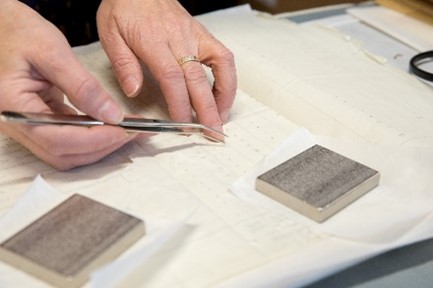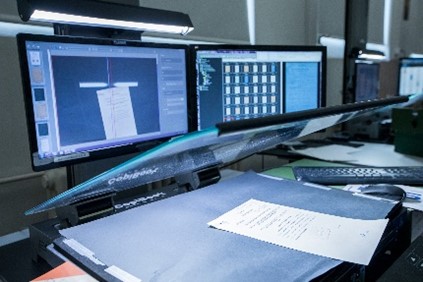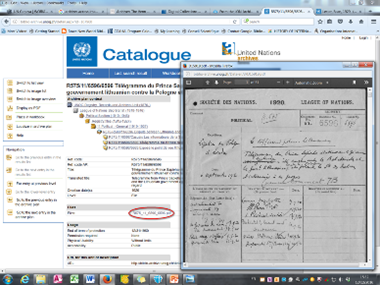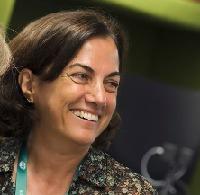Maria José Lloret Alcañiz is the Digital Preservation and Access Managera at the United Nations Library & Archives in Geneva.
The United Nations Library & Archives in Geneva are responsible for the preservation of the archives of the League of Nations (LON) and have the mission to make them accessible for researches and historians around the world. The access is public, but the paper archives must be consulted on site; that’s probably the main reason why most users are coming from Europe and the US.
That was the situation before the 5-years ‘Total Digital Access to the LON Archives Project’, known as LONTAD, was born. The project will provide for the digitization, physical and digital preservation and online access of the LON Archives.
I remember the day, in mid-2017, when I first heard about the donation that our Director General had received from a Geneva foundation, to support the digitization of the entire LON Archives. I had been working in the Library & Archives for many years, managing a team in charge of the computing infrastructure and IT systems, including the Archives Management system. But, to be honest, I knew very little about the contents that my colleagues were cataloging into the system. The project sounded really interesting for the archivists, of course, but it was also challenging for an IT professional, so I didn’t hesitate to join the management team and take over the responsibility for technology, including digital preservation. From the beginning, it was clear that the latter was an essential component of the project which represents an enormous undertaking, requiring a substantial investment: we could not take the risk that one day the digitized material might be lost or become unusable.
The first months were very intensive: defining the project, establishing the operational workflows (pre-digitization, digitization and post-digitization), designing the IT architecture, selecting a scanning company and recruiting the pre- and post-digitization teams. We consulted experts from several libraries and archives, as well as professionals from other international organizations. We looked for similar projects as possible references, but the size of ours (15 million pages, 3 Km of paper documents) was making it quite exceptional.
Operations were staggered: the pre-digitization team started in February 2018, scanning operations in May and post-digitization (quality control and descriptive metadata creation) later in the year. In parallel, a business case for the IT components of the project was developed with the objective ‘To acquire software and services for the management, long-term preservation of, and to provide access to the digital copies of the League of Nations archives’, targeting mid-2022 as tentative completion date.



Preparation Scanning Metadata description
Everything was looking good, wasn’t it? Well, I know now that we had underestimated the time needed to acquire the IT systems (procurement process!). In July 2019, when we finally managed to implement Preservica, the digital preservation system, the scanning operations had already produced millions of files, almost 100 TB of data. We realized that preparing and ingesting the data packages into Preservica, with its standard tools, would have taken longer than the three years left before the project closure. In order to gain time, we started a collaboration with Preservica: using the APIs and taking advantage of the homogeneous structure of files and formats (JPEG2000 for preservation copies and multi-page PDFs for access copies), the whole process could be automated.
Today, all the scanned and quality-controlled files have been ingested in Preservica. The hierarchical structure of the archives has been maintained, thus facilitating the research from the user interface.
The data is already available to researchers through the Preservica ‘Universal Access’ interface, as a temporary solution until the final public interface will be configured. This decision was made in the context of COVID-19 and has allowed the Library & Archives to continue delivering professional services to our users, at a time when in-person consultation has been unfortunately prohibited or severely restricted.
As soon as all LON archives will be digitally available, the potential use of the archives will change significantly: access to researchers will become truly global and we will provide new pathways for analysis via digital humanities.
Our project is also important for the general need of digital preservation within the UN, as it has provided the UN Secretariat with an innovative and scalable solution.
And, yes, I forgot to mention that now, thanks to this project, I have not only learned a lot about digital preservation, but I also know much more about the contents of the LON archives.
